No Longer Human by Osamu Dazai Book Review
![]()
"A lonely modern man"- Natsume Soseki described himself with those words but I think that they are as true for Osamu Dazai and the protagonist of Dazai's semi-autobiographical novel.
The novel is divided into three notebooks. The novel is narrated in first person and much of what the protagonist feels is is told rather than shown. If you don't like first person narrators who go into great lenght you may want to skip this, then again it is only 177 pages long. There isn't a lot of dialogue and it reads a lot like an essay. I have mixed feelings about this approach, on the one hand it gets to the point pretty quickly without frustating the reader with unnecessary details on the other hand it dictates exactly what the reader needs to feel about Yozo. This problem is slightly overcome the prologue and the epilogue.
The novel opens with a sort of short prologue by a journalist seeking to publish the three notebooks he had found after the war(WWII) imparting to the reader his impressions of Yozo through three photos of Yozo, as an adorable child with a monkey-like grin and clenched fists among women who were most likely his relatives, as a extra-ordinarily handsome young man sitting in a wicker chair with a smile somehow lacking in vitality, and as a man with streaks of grey hair this time no smile and with features so average and indistinct that he was instantly forgettable and lacking in individuality. The epilogue is by a bar woman who had looked after Yozo who gave the journalist the notebooks. The bar woman says that Yozo was fine and that it was all his father's fault. Who should we believe? Well, Yozo himself begins the first notebook with 'Mine has been a life of much shame' and that sets the tone for the rest of the narrative.
The protagonist could be described as a frail-hearted alcoholic womanizer seeking a mother who he could sleep with and then running away in a fit of fear from one woman to the next. Strangely enough though nothing is said about Yozo's relationship with his mother the figure of Yozo's father looms above the narrative even though or perhaps because his father is absent from most of the action in the novel. It is implied that he was brought up by his female relatives which in a way sets the tone for the life in which he would be living looked after by women.
Of course the specifics of the protagonist's life are a world apart from most people's lives. And yet most of his observations resonated with me. Many of the observations are quite mundane and well known, like for example how when he was a child he attended a political rally where his father gave a speech and the same adults who congratulated his father for his speech would then comment on how boring the speech was when his father was not there. Others are more difficult for me to relate to, like his inability to feel hunger and need to act as if he was hungry infront of his father's house maids. I could go on listing and discussing each observation Yozo makes and that would be a worthy endavour but now I have got to get this post out to make some shekels fast.
I don't want to give the impression that this is some sort of purely social commentary novel like Orwell's 1984 (or for that matter all of his novels) where the events taking place overshadow the characters and turn them into conduits for diagnosing the ills of society. Yozo is not standing there and telling us what is wrong with society he is telling us what is wrong with him and finally concluding that he is 'disqualified as a human being'(which is the literal translation of the title). Is his diagnosis right? Well, if Hitler, Stalin, Polpot and the all the members of that club of interesting personalitites are still human I think there is enough space in humanity for some depressed drug-addled failed artist, or at least I would hope so.
The protagonist of No Longer Human is a cartoonist and depressed which is probably why he is popular enough among otakus for their to be several manga adaptations and an anime adaptation too. Then again he is also popular among non-otaku Japanese too so that is a more plausible explanation.
I give this book a 4 out of 5. The protagonist's worldview is interesting and very well explored but it is not questioned hard enough because he never voices it to others, it is just his internal monologue that we get to hear for the most part. Then again I guess the debilitating isolation that one feels when one is unable to voice one's opinion out of fear of others is one of the points the novel wants to make. Relatability sells which is why this novel has sold so many copies, that doesn't of course excuse it. The author's double suicide with his lover following the publication of the novel probably helped too especially given that something similar to that happens in the novel. I want to crack some joke about the Japanese and suicide but only same lame 'to commit sudoku' jokes come to mind. All humour is gallows humour.
Recommedations:
Neon Genesis Evangelion(anime): A tv show about giant robots, aliens, conspiracies and depression.
My Youth Romantic Comedy is Wrong As I Expected by Wataru Watari(anime, light novel): Romantic comedy about a cynical high schooler with no friends. Watch the anime adaptation if you are too lazy to read.
Kokoro by Natsume Soseki(novel): Another influential Japanese novel about suicide and loneliness.
Welcome to the NHK(anime): Dark comedy Tv series about a college-dropout who is afraid of human beings. There is a light novel and a manga but just watch the anime.
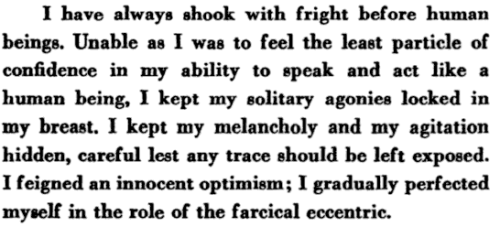
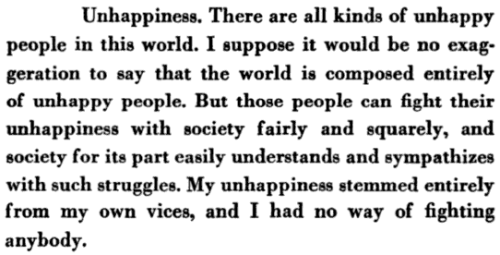
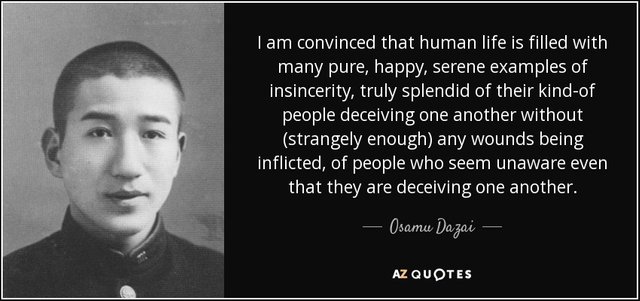
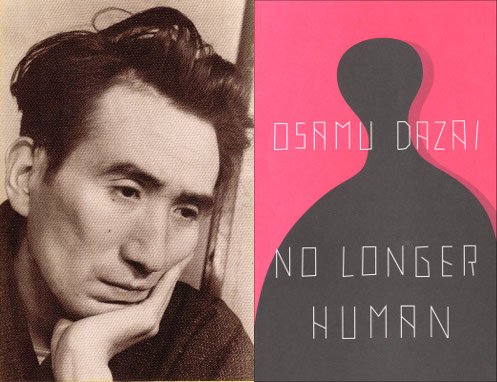
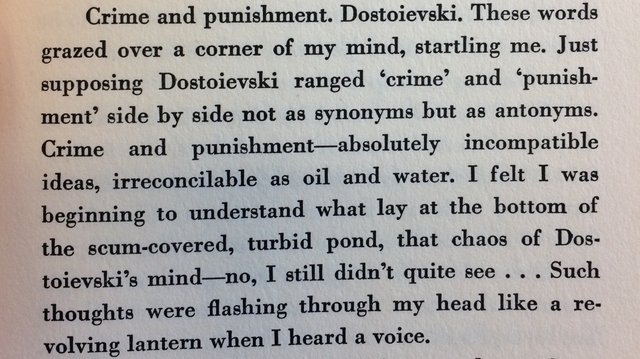
'Remember this?Remember that?' Some parts of NLH come off as an essay in novel format. I am categorically against this sort of direct essay-like references to other texts in fiction. Some subtle allusions are okay. Fortunately it doesn't happen too often and this is the only part where it is so direct.
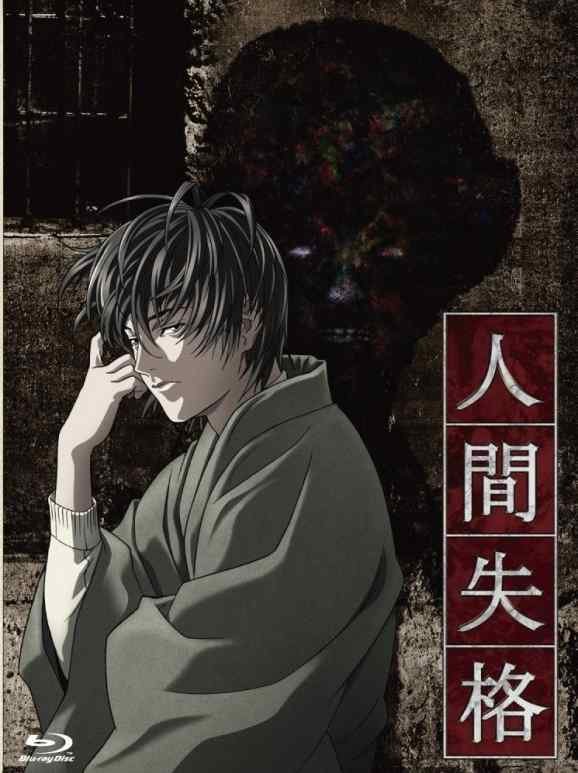
The first four episodes of the Aoi Bungako series is an adaptation of NLH which is inferior to the novel because the characters, especially the protagonist, are not given enough screen time to breathe and just come off as needlessly melodramatic and victims of circumstance rather than wise. It feels more like a short story than a novel. I will write a review of the Aoi Bungako series discussing each of the stories in it (so if you are interested subscribe to this blog).
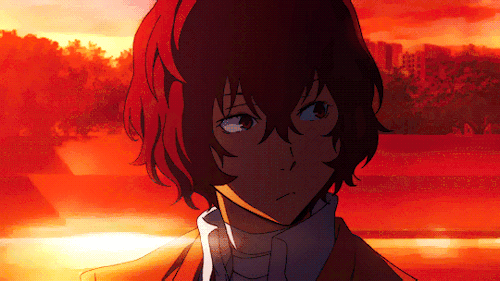
Osamu Dazai from Bungou Stray Dogs TV Anime - is one of those anime in which stars historical figures(this time only dead writers) to give an illusion of characterization.
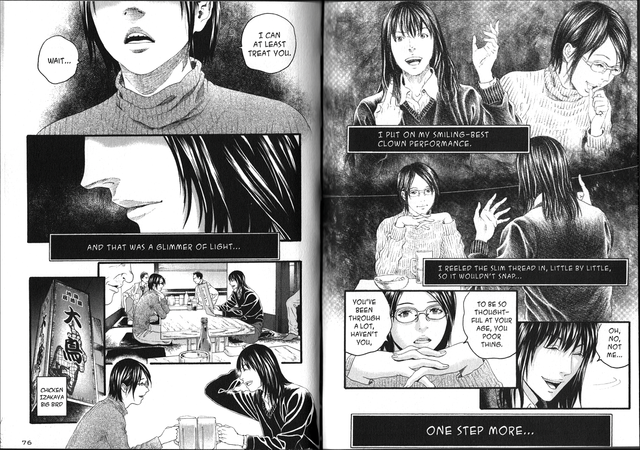
The manga adaptation (I think there is more than one) by Usamaru Furuya is in some ways better and in some ways worse than the novel- I will write a review of it next which will inevitably devolve into a comparison with the novel. It's not that it can't stand on its own, it's just that I can't review it on its own having read the novel first.
And to finish this off here are some pictures of Osamu Dazai looking cool.
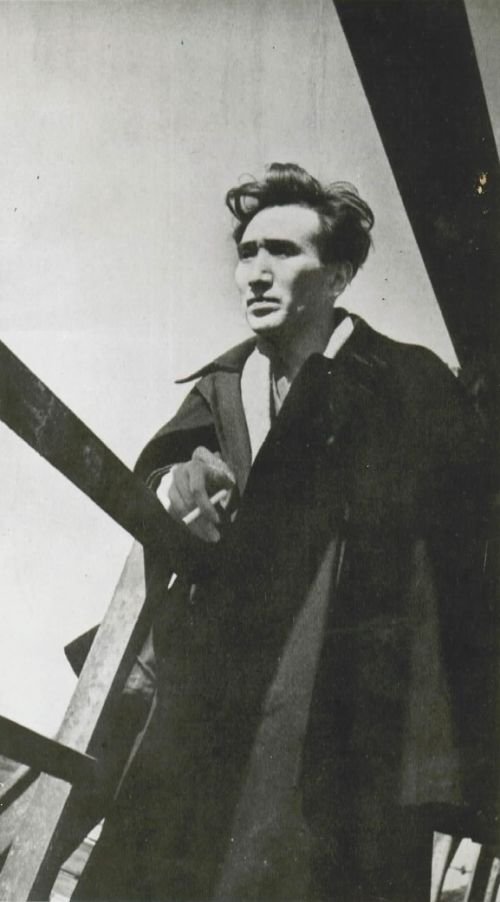
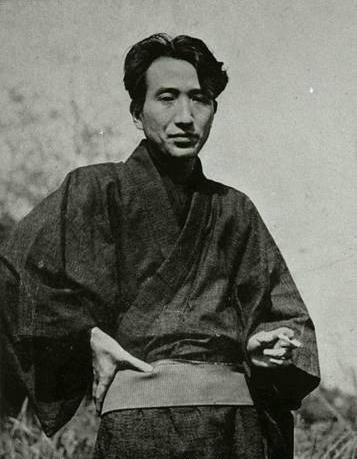
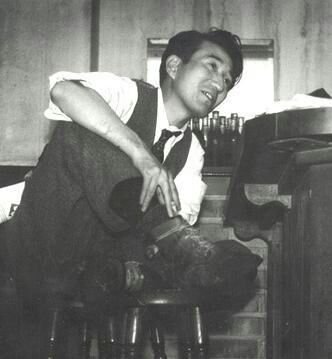
Great post! :D Very interesting!